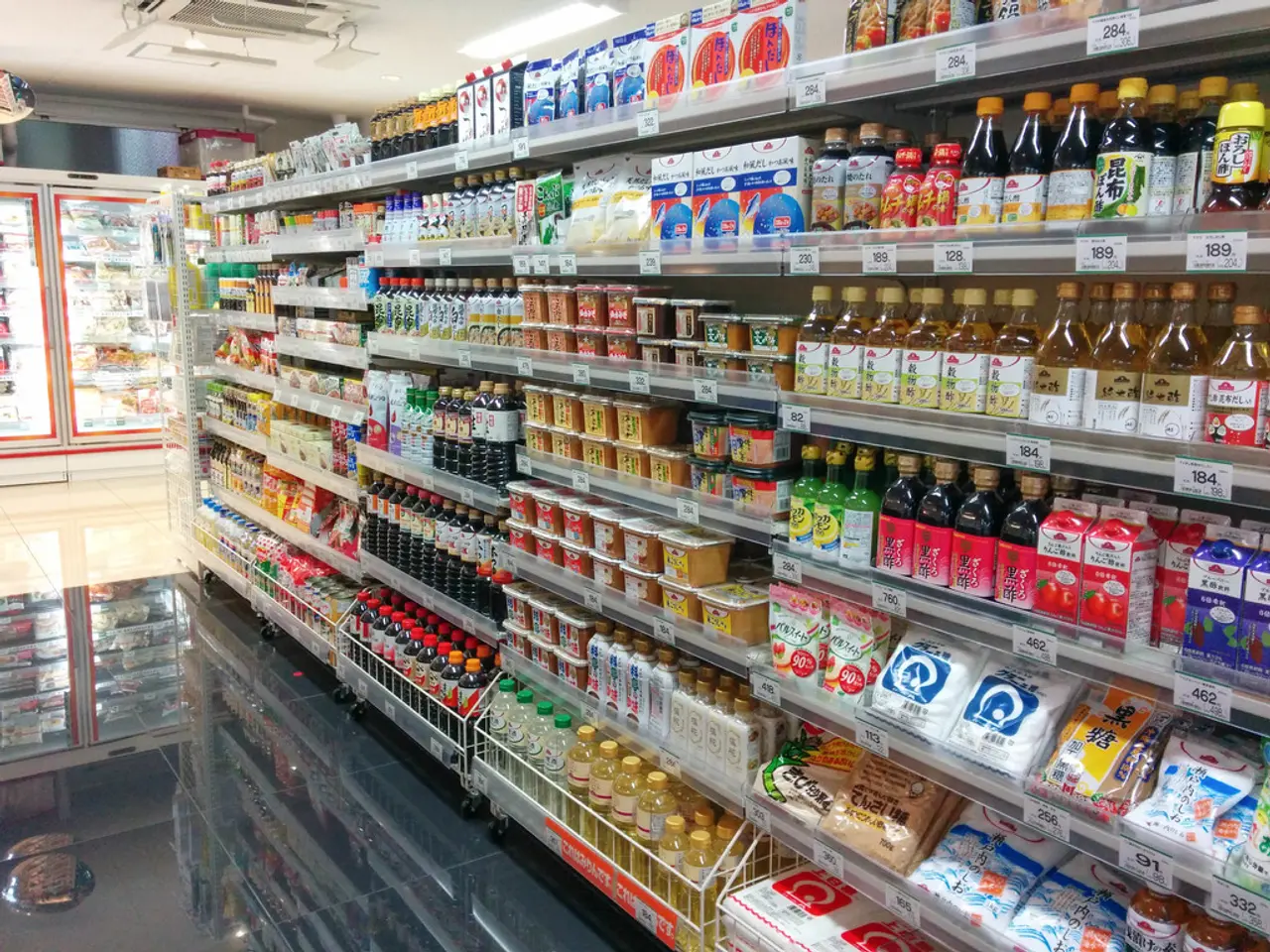German retail sales experienced a notable surge in June
In a positive turn of events, retail sales in Germany saw a significant boost in June 2025, with the online and mail order sector leading the charge. According to preliminary results announced by the Federal Statistical Office (Destatis) on Wednesday, retail sales grew by 4.9% in real terms and 5.8% in nominal terms compared to the same month last year.
The online and mail order sector experienced a particularly impressive growth, with a 14% year-over-year surge. This strong growth in the digital retail area helped offset stagnation in traditional sectors such as food retail and declines in other areas like car registrations, which fell 5.6% year-over-year.
Several factors contributed to this retail sales boom. Improved consumer sentiment, supported by stable inflation at 2.1% and real wage growth, boosted purchasing power and spending capacity. A rebound after prior monthly declines, as retail sales rose 1.0% month-over-month in June following a 1.6% decline in May, signaled recovery momentum in retail.
Despite a 0.95% annual decline in retail employment, the growth in e-commerce and logistics sectors helped balance out losses from brick-and-mortar store closures. Significant investments (€3 billion in H1 2025) prioritized logistics infrastructure essential for online retail growth.
A broader shift in consumer behavior away from discretionary spending towards essentials and private-label goods also framed the retail environment, although online sales still expanded strongly among these trends.
In the food retail sector, sales increased by 0.3% in real terms and 0.3% in nominal terms compared to May 2025. In contrast, sales in the non-food retail sector increased by 1.8% in real terms and 1.4% in nominal terms in June 2025 compared to the previous month.
However, no information was provided regarding the number of retail stores or the total value of sales. Additionally, no information was available about any future projections for retail sales or the impact of the sales increase or decrease on the overall economy.
[1] Destatis (2025). Retail sales in Germany, June 2025. Retrieved from https://www.destatis.de/en/themes/business-and-consumer/retail-trade/time-series/retail-sales-in-germany.html [2] Destatis (2025). Car registrations in Germany, June 2025. Retrieved from https://www.destatis.de/en/themes/transport/road-traffic/time-series/car-registrations-in-germany.html [3] Destatis (2025). Consumer price index in Germany, June 2025. Retrieved from https://www.destatis.de/en/themes/business-and-consumer/prices/time-series/consumer-price-index-in-germany.html [4] Destatis (2025). Retail sales in Germany, May 2025 (revised). Retrieved from https://www.destatis.de/en/themes/business-and-consumer/retail-trade/time-series/retail-sales-in-germany.html
The growth in the retail sales in June 2025, particularly in the online and mail order sector, has been attributed to several factors, including improved consumer sentiment, stable inflation, and real wage growth (Destatis, 2025). This increase in online retail sales could be considered as a financial boost for digital businesses in Germany.
Despite a decrease in retail employment, significant investments in logistics infrastructure have helped offset losses from brick-and-mortar store closures, demonstrating a shift towards a more digitally oriented economy (Destatis, 2025). These investments can be seen as an important financial decision that prioritizes the growth of e-commerce and logistics sectors.




